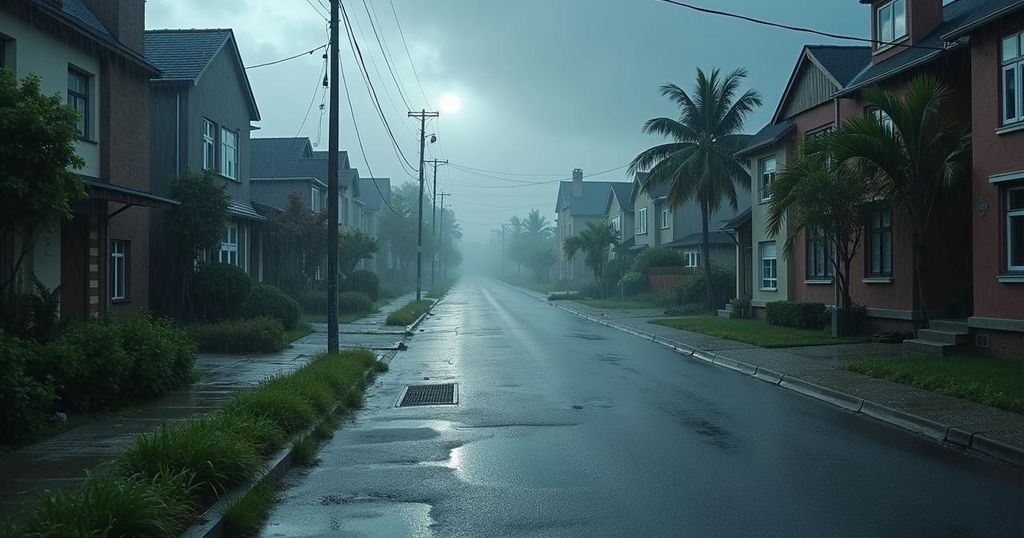Human-induced climate change has been shown to increase the rainfall from Hurricane Helene by 10% and its winds by 11%. Warming sea temperatures are linked to the enhanced severity of both Helene and the approaching Hurricane Milton, illustrating a concerning trend for future hurricane activity.
A recent study conducted by scientists from the World Weather Attribution (WWA) center has determined that human-induced climate change significantly exacerbated the impacts of Hurricane Helene. Specifically, the storm’s rainfall was increased by approximately 10%, while its wind speeds surged by about 11%. This intensification is attributed to the warming climate, which elevated the sea temperatures in the Gulf of Mexico—a critical factor in storm development—by between 3.6 degrees Fahrenheit (2 degrees Celsius) above the norm. These elevated temperatures made conditions conducive for the storm to occur 200 to 500 times more likely than in a pre-industrial climate. Moreover, the study indicates that Hurricane Milton, currently threatening the Florida coastline, is likely to exhibit similar intensifications due to the ongoing effects of climate change. Notably, the grave ramifications of Hurricane Helene included a devastating death toll exceeding 230 individuals, with many fatalities resulting from substantial inland flooding rather than from high winds. Helene left a trail of destruction across several states, including Florida, Georgia, and the Carolinas, and caused record-high storm surges of 15 feet (approximately 4.57 meters). As climate change continues to escalate, scientists warn that hurricanes of this magnitude will become more frequent. Hurricanes comparable to Helene were previously estimated to occur once every 130 years, but current conditions are approximately 2.5 times more likely to produce such intense storms. Continuing the reliance on fossil fuels is projected to significantly raise the frequency and severity of future hurricanes, thereby presenting an urgent challenge for emergency preparedness and resilience efforts.
The link between climate change and extreme weather events, particularly hurricanes, has garnered significant attention from the scientific community. As the planet’s temperatures rise due to greenhouse gas emissions, the capacity of the atmosphere to retain moisture increases, leading to more intense precipitation during storms. The WWA’s rapid assessments employ advanced weather data analysis and climate models to ascertain the extent to which specific weather phenomena can be attributed to human-induced climate change. The consequences of rising sea temperatures—a driving force behind hurricane formation—underscore a crucial area of concern that experts are increasingly focused on as climate change progresses.
In summary, the findings from recent studies shed light on the profound impact of climate change on hurricane intensity and precipitation. The increases in rainfall and wind speed associated with Hurricane Helene underscore the urgent need for comprehensive strategies to address climate-related challenges. The anticipated effects on Hurricane Milton further highlight the ongoing risks posed by warming ocean temperatures and increasing greenhouse gas emissions. Moving forward, it is imperative to prioritize emergency preparedness and invest in sustainable energy solutions to mitigate future risks associated with such devastating storms.
Original Source: phys.org






